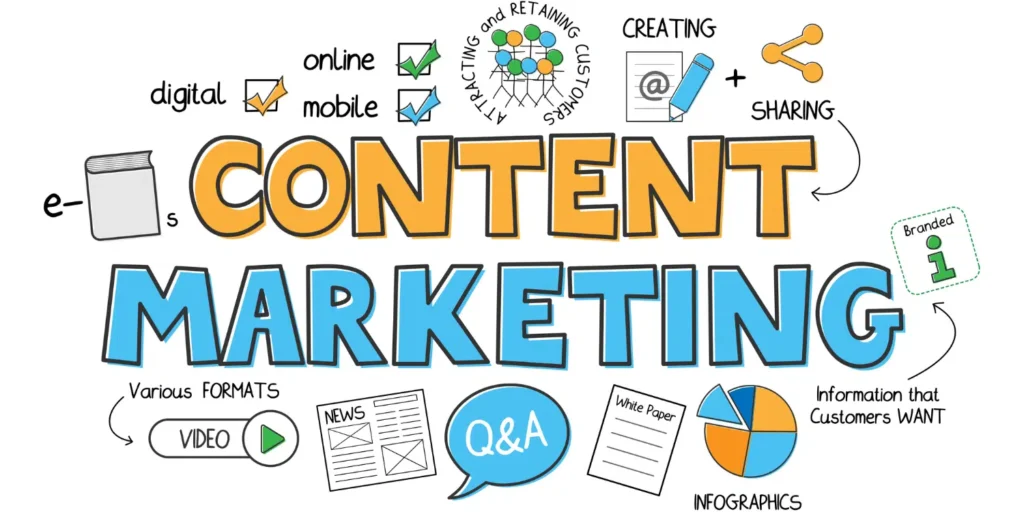

Content marketing is a strategic approach focused on creating, distributing, and promoting valuable, relevant, and consistent content to attract and engage a targeted audience. The primary goal is to build trust, generate leads, and drive customer action that ultimately leads to conversions or sales.
Unlike traditional advertising, content marketing emphasizes educating or entertaining potential customers without directly selling to them. Common formats include blog posts, videos, social media updates, podcasts, infographics, and newsletters. By providing helpful or insightful content, businesses can establish authority in their industry, nurture relationships with customers, and improve brand awareness.https://bit.ly/4fbpDIj

Here’s a detailed breakdown of Content Marketing in column format:
| Aspect | Details |
|---|---|
| Key Skills | Writing, SEO, Creativity, Editing, Research, Storytelling |
| Tools | WordPress, HubSpot, SEMrush, Ahrefs, Grammarly, Google Analytics |
| Responsibilities | Creating blog posts, guides, eBooks, infographics, videos, and social media content |
| Content Types | Blog posts, Articles, Infographics, Videos, Whitepapers, Case Studies |
| Goals | Build brand awareness, Drive organic traffic, Educate customers, Generate leads |
| How It Contributes | Establishes brand authority, Drives organic traffic, Increases engagement, Builds trust |
| Best Practices | Focus on target audience, Optimize for SEO, Consistency in publishing, Provide value |
| Metrics to Track | Organic traffic, Engagement (shares, likes), Conversion rates, Time on page, Bounce rate |
Content marketing is a strategic approach that resonates with your audience.
Valuable and relevant content builds trust and credibility with your customers.
Through blog posts, videos, podcasts, and social media, businesses connect with their target audience.

Content marketing involves creating and sharing valuable, relevant content to attract and engage a target audience. The ultimate goal is to drive profitable customer action. This could be through blog posts, videos, infographics, social media posts, and more. Unlike traditional advertising, which often interrupts potential customers, content marketing provides value upfront.
Conclusion
In conclusion, content marketing is a powerful strategy that can help businesses build trust, establish thought leadership, and drive long-term growth. By creating and distributing valuable, relevant, and consistent content, marketers can attract and retain a clearly defined audience, ultimately driving profitable customer action.